Prayer is a “conversation” between God and His servant. God speaks at all times and the servant sometimes hears; the servant speaks sometimes, always making a request, while God always listens. The Prophet Muhammad said that prayer is the “miraj.”
When Muslims speak of prayer, this hadith often comes to mind: “Prayer is the ascension (miraj) of the believer.” The Prophet Muhammad said this hadith during his ascension to the heavens. More precisely, prayer was made obligatory during the miraj as a way for believers to experience ascension. Prayer is a conversation that takes place during the miraj in the divine presence. While this conversation happens directly with the Prophet Muhammad, other Muslims experience it through imitation. Believers imagine being in the divine presence during prayer, speaking by imitating the posture and speech of the Prophet Muhammad. The term “salat” (prayer), meaning to pray in the state closest to the divine presence, has been attributed to God, and it is said that “God prays.”
In this regard, prayer is a shared act between God and the believer. Muslim scholars have explained the phrase “God prays,” knowing that the word “salat” gains its special meaning when attributed to God. For God, salat refers to mercy and the act of creating beings. This aspect of prayer explains the connection between mercy and existence. Therefore, prayer serves as a principle in the believer’s life that builds positive values.
The depth of meaning and value in Islam is revealed during the Prophet Muhammad’s ascension. The miraj is the journey where all doubts are removed, making room for truth. There is no other topic in Islam that has influenced the Muslim community as much as the miraj, determining their intellectual and moral lives. The miraj has never been considered a miracle exclusive to the Prophet Muhammad. Rather, it became the general term for the moral and religious efforts of every individual striving to ascend from their current level. The Prophet Muhammad was carried by the Burak during the miraj. The Burak in Islamic tradition refers to a supernatural creature, often depicted as a horse, which carried the prophet during his miraculous night journey miraj. Muslims, without much contemplation about the nature of the Burak, have said: “What elevates a person are their morals and deeds.” “Riding the Burak of deeds and morals” is one of the finest expressions in Sufi literature.
Most beautiful form
When God Almighty speaks of the creation of humans, He says: “We have created the human being in the best form.” This verse identifies the noble aspects and superior characteristics of a human being. Then, when reading the verse stating that humans were cast to the lowest of the low, one might wonder: Has God taken away the beauty and superiority He had bestowed upon them when He cast them down? Islam presents a paradoxical understanding of humans by saying that they do not lose this quality.
In this interpretation, humans are seen as the battleground for good and bad qualities and attention is drawn to the miraj. The miraj is the ascension from a lower state to a higher one, progressing toward the true realm. When a human falls from the highest rank to the lowest, two qualities emerge: one is divinity and the other is lowliness. Sufi philosopher Mevlana Jalaluddin Rumi, to explain the contradictory state of humans between these two sides, says: “Man is a donkey with wings, then he is called to join the assembly of angels.”
The distance a human travels from the animalistic state to true humanity depends on their moral actions. Humanity is the collective name for values such as justice, chastity, mercy, generosity and courage. The closer a person approaches moral values, the further they stray from animalism. Being characterized by superior values is called miraj, while falling down is referred to as degeneration. Saying that prayer is the miraj of the believer means that prayer is the high morality that elevates a person from a low state to a higher one. In this case, prayer becomes both the cause and the result of all superior morals. This situation is described in the Quranic verse: “Indeed, prayer prevents immorality and wrongdoing.” Even though such expressions are found in relation to other acts of worship, subjectivity is most strongly attributed to prayer. Because prayer means standing in the divine presence. Prayer does not restrain the person; rather, God, in whose presence they stand, prevents them from all evil.



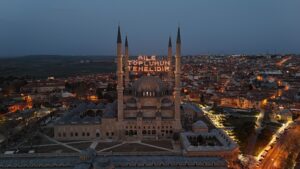
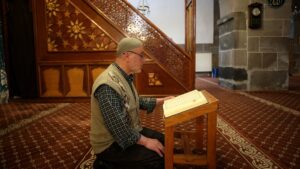







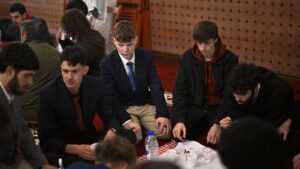














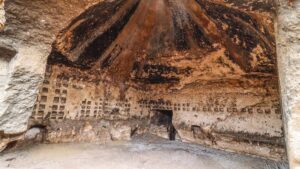























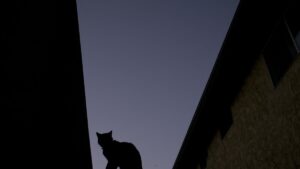
Be First to Comment